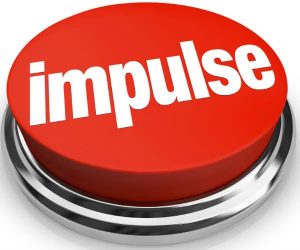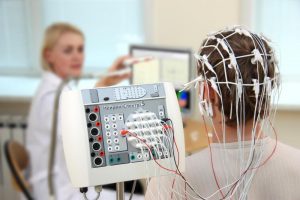When you are addicted to a substance, your brain creates a neural pathway like wires, and that motivates you to repeat the unwanted behavior. You have two ways to recover from substance use disorder: conventional methods and neurofeedback therapy.
The conventional methods involve medications, behavioral therapies, and support groups. There are side effects and painful withdrawal symptoms from the medications you’ll be taking in the process.
Conversely, neurofeedback therapy or EEG is a modern way of helping you recover from addiction. It’s painless and non-invasive, which makes it highly convenient and has no side effects.
So which one are you choosing? Let’s talk more about the feasibility of EEG in treating your substance use disorder.
How Does Neurofeedback Therapy Treat Addiction?
Generally, there are two types of addiction struggle: over-aroused and under-aroused. Nevertheless, you can instantly shift from one state to another, depending on the condition and behavior.
When you are in the state of over-arousal addiction, you are feeling the following:
 Impulsivity
Impulsivity- Anxiety
- Reactivity
- Feeling uncomfortable with one’s personality
Consequently, to ease your over-arousal, you are motivated to use substances that can depress your senses, mind, and body. Some of these depressants are benzodiazepines, opioids, and alcohol.
Conversely, electroencephalography (EEG) can be used to calm your senses so that you will never be dependent on any substances. The practitioner will measure your brain waves first and then take note of the results.
Then he can use neurofeedback therapy to reward your brain in case it can calm down without using any depressants. This provides a safe and convenient method of helping you realign your brain function again.
How Does Neurofeedback Therapy Treat Under-Arousal Addiction?
Conversely, if you are in a state of under-arousal, then you’re motivated to find substances that can give you a euphoric feeling. Some of the usual stimulants abused in the market are methamphetamine, cocaine, and heroin.
To restore your brain’s normal function, the EEG is used to motivate your brain in producing high frequency waves that’ll help your mind do the following:
- Improve concentration
- Brings out a positive mood
- Elevates your motivation
- Boosts your energy
Is Neurofeedback Therapy Effective in Medicating Addiction?
This innovative and non-invasive treatment procedure is great for fostering long term sobriety since your brain no longer needs an immediate presence of the drug to ease its needs.
EEG helps your brain train itself to either calm down or energize when it faces a trigger. The strangled wires produced by addiction are already retired and aligned by neurofeedback therapy.
Does Neurofeedback Therapy Helps Balance Yourself?
Basically, this non-invasive treatment procedure not only alleviates cravings for addiction but also helps restore balance in your thinking. The mental disorders you are experiencing right now are products of a misaligned thought, which requires rewiring and retraining.
Additionally, when you undergo this procedure, you will receive the following benefits:
- Better sleep through the night
- Normal blood pressure
- Just decision-making ability
- Increased self-motivation
- Inner peace
- Better handling with stress
How Does Neurofeedback Therapy Promote Recovery from Addiction?
 EEG is never an island when it comes to helping you recover from substance use disorder. This can actually be paired with other behavioral therapies like the 12-step program, Cognitive Behavioral Therapies, Motivation Enhancement Therapy, and more.
EEG is never an island when it comes to helping you recover from substance use disorder. This can actually be paired with other behavioral therapies like the 12-step program, Cognitive Behavioral Therapies, Motivation Enhancement Therapy, and more.
Basically, the drugs you abuse alter your brain since it’s craving for a specific reward or sensation. However, through EEG, you can retrain your brain to function differently without any dependence on the drug.
The practitioner will specifically target some areas in your brain that are affected by addiction and then correct its response. It’s an excellent therapy that can help promote long term sobriety.
Are You Having Better Sleep After Neurofeedback Therapy?
 No matter what kind of substance use disorder you’re having, one baseline condition that most patients have is the inability to sleep properly, depression, and anxiety.
No matter what kind of substance use disorder you’re having, one baseline condition that most patients have is the inability to sleep properly, depression, and anxiety.
These are the common three things you can feel when the effect of the drug subsides. When you’re feeling anxious or depressed, your brain has more beta waves than alpha waves. If you have trouble sleeping, then you have fewer delta waves.
Using neurofeedback therapy, you can retrain your brain so that your alpha, beta, and delta waves are restored to their normal levels.
How Long Does the Effects of Neurofeedback Therapy Last?
Besides boosting recovery from addiction, EEG has shown effective long term effects on your sobriety. Conversely, the effects of EEG on children with ADHD lasts for around twelve months.
Conversely, for treating addiction, EEG can efficiently support lifetime freedom from substance use disorder. You can also have some sessions of neurofeedback therapy but not as frequently as before since you’ve already gained independence from substance use disorder.
Will Neurofeedback Therapy Change Your Personality?
This non-invasive treatment process will just retrain specific areas in your brain, but it will never change your core personality. It will definitely help calm your mind and boost your motivation to recover.
Moreover, your ability to focus and retain short term memories is enhanced with EEG. This is pretty useful since substance use disorder decreases your ability to remember short term events.
How Do You Know What’s Necessary for Neurofeedback Therapy?
The practitioner will first do a brain map of yourself, so they can diagnose the problem inside your head. After they plot those specific areas in your brain which need retraining, then they can start with the session.
How Long Until You Feel A Difference for Neurofeedback Therapy?
Patients have varying times in feeling the effects of EEG. Some can feel it immediately even after their first session, while others on their third session. Generally, most patients feel significant relief after 6 to 8 EEG sessions or at least 3 to 4 weeks of continued treatment.
Is Neurofeedback the Same with Biofeedback?
Neurofeedback is a specific classification of biofeedback, where it targets your brain wave patterns. The practitioner will subject you to various stimuli and observe what will be your corresponding response.
Conversely, there are other types of biofeedback, that include heartbeat and blood pressure. It will be specific to that organ of the body you are observing.
Indeed, EEG is an efficient method of helping you and other patients recover from substance use disorder.
